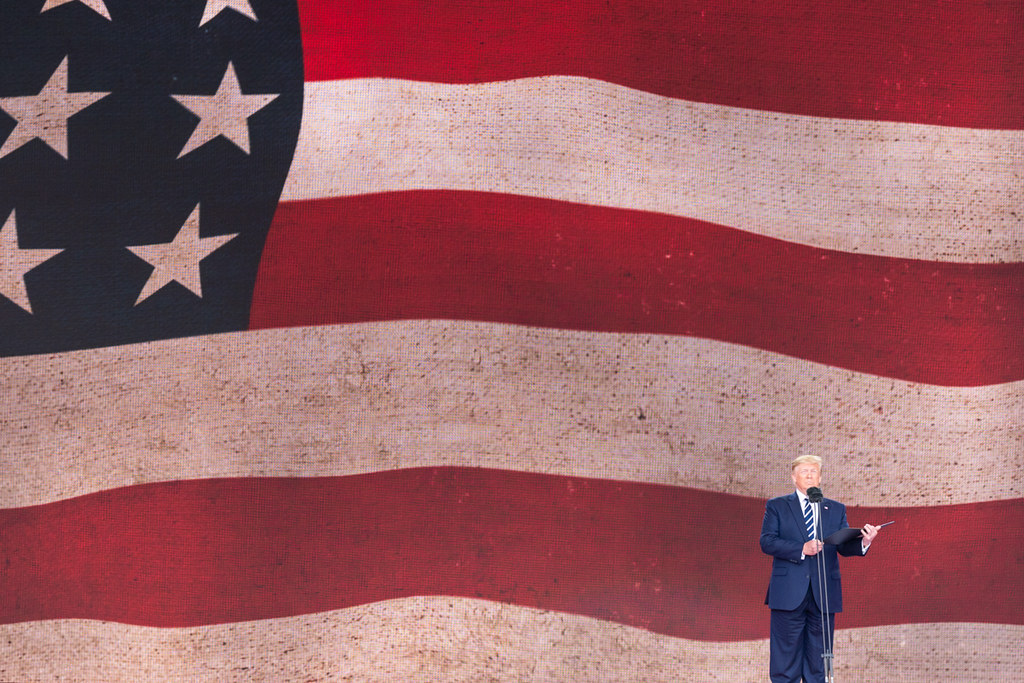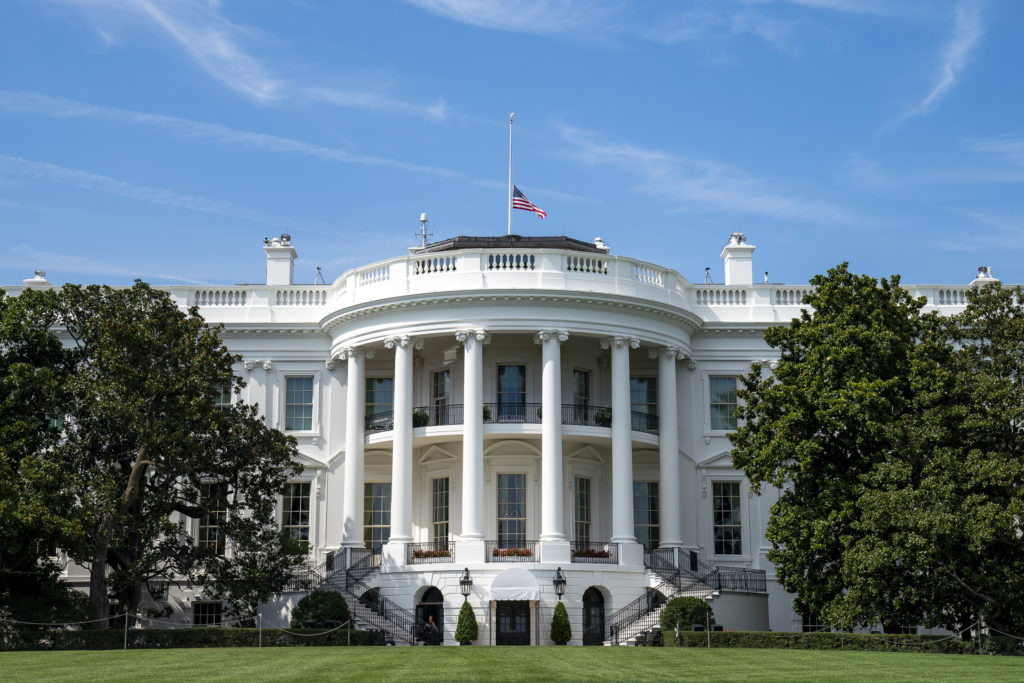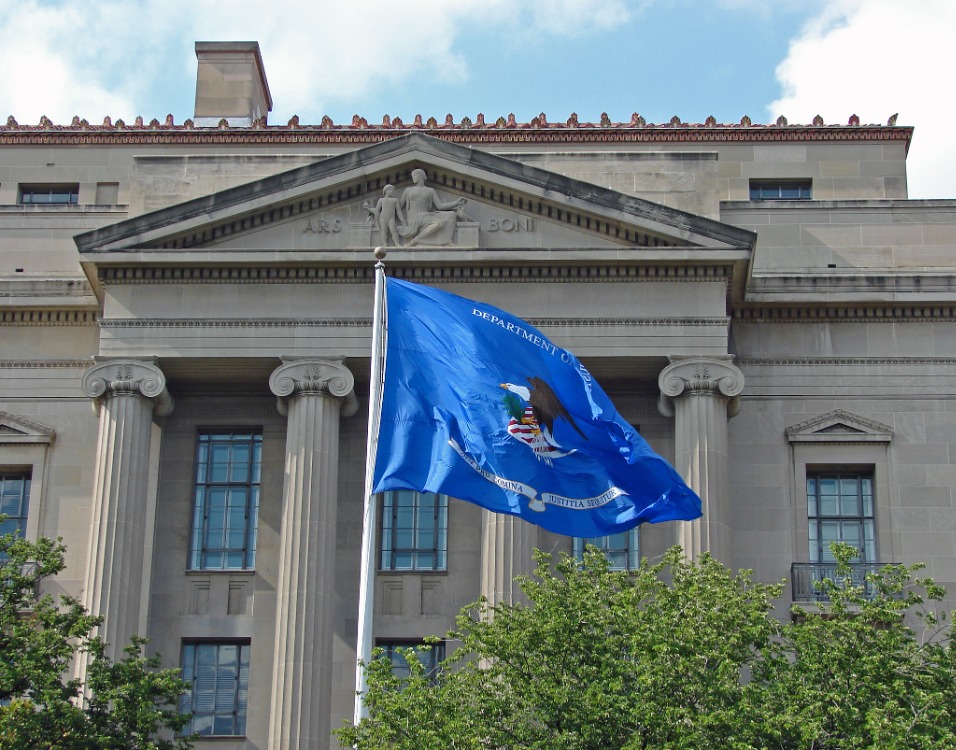The Situation: An Attempted Regime Change
The plate tectonics of the current legal and political fights.

Published by The Lawfare Institute
in Cooperation With

The Situation on Tuesday called on The Atlantic to release the “Houthi PC Small Group” Signal thread, which it promptly did.
Today let’s examine the tectonic level of the confrontation between President Trump and the ancien régime.
It is easy to get mired in the details of the battles. Today, for example, two major law firms are suing the administration over President Trump’s executive orders targeting them. Voice of America employees are doing the same. There are ongoing litigations over deporting Venezuelans without due process—and over compliance with court orders related to these litigations. The list is almost endless, and each case has its own nooks and crannies to get lost in. Feel free to join us getting lost in these nooks and crannies on this week’s Lawfare Live:
At the same time, the administration is fighting appropriations battles in Congress, resisting calls for investigations of its handling of military planning information, radically shrinking federal agencies, firing officials, and still staffing itself. It is also picking fights with allies, and making nice to foes. Each of these initiatives similarly supplies endless rabbit holes in which to dive deep.
An old colleague of mine at the Washington Post editorial page, the late Peter Milius, used to growl at me sometimes about my editorial drafts: “Wittes, you need to break through to higher ground,” he would say. And this meant I was too in the weeds of some legal issue or another and not getting enough altitude in my copy to explain to general interest readers why something mattered.
I want to try here to break through to higher ground—but not about why The Situation matters.
In this case, I think, everyone knows The Situation carries high stakes. What gets lost amid the minutia is not whether or why it all matters. People feel instinctively that the moment is portentous. Some find that portentousness exciting. Some find it menacing. But it clearly isn’t business as usual. It clearly matters.
What’s getting lost, rather, is the big picture of what is happening, which is nothing more or less than an attempted regime change in a country with a historically stable, liberal democratic regime. It is an attempt at what Yale law professor Bruce Ackerman has described in other contexts as a “constitutional moment”—which, loosely speaking, describes a period of sudden constitutional ferment and action, which may or may not involve changes to the constitutional text itself but which does carry major change to the fundamental principles of governance.
In this case, the proposal involves attempting to replace a bipartisan ancien régime that has formed gradually over the past century or so. It’s a regime that—to reduce it to its essence—has involved two major political parties, each covering a great deal of ideological ground, that have shared a commitment to democratic capitalism and individual liberties. They have had a broadly shared view of American foreign policy interests (with a healthy zone of dispute as to aspects of it such as regulatory energy and marginal tax rates), a similarly shared view of a modest but nontrivial welfare state in the context of robustly free markets (again, with a healthy zone of dispute regarding the scope of that welfare state), broad respect for civil liberties (with fierce argument about what constitutes a civil liberty), the belief in a competent administrative state, and critically, an agreement to relinquish power when the other side wins.
The regime Trump proposes, by contrast, would displace this regime and supplant it with something quite different with respect to each of these elements. His Republican Party does not purport to cover a lot of ideological ground. It is a coalition built around him and loyalty to him personally. It does not respect the right of the other side to participate in the political process unmolested. It takes a patrimonialist approach to governance, waging war against bureaucracy that does not pay fealty to the leader. It has a radically different understanding of the proper role of the United States in foreign affairs—one based on extractive bullying and mercantile trade policies, not on any kind of enlightened self-interest with respect to other nations. And most fundamentally, it does not acknowledge—in either word or deed—the possibility of the other side’s winning elections and displacing it from power.
Exactly how illiberal and how undemocratic the proposed new regime would be is a matter of some speculation, and exactly how liberal and democratic the ancien régime has been is a matter of vigorous debate. So my point is not quite as simple as the claim that Trump proposes to replace American democracy with authoritarianism.
The point, rather, is that the tectonic level of The Situation is clearly an effort to replace one regime—comparatively liberal, comparatively democratic, comparatively impersonal—with another one—less liberal, less democratic, more clientelist, and more personal. The fundamental tension in America’s current moment involves how these two tectonic plates behave as they crash into each other.
Trump could succeed in this venture hardly at all, in which case the ancien régime destroys or outlives him and then proceeds to lick its wounds and rebuild from the damage he has done. He could succeed partially, passing on a somewhat less liberal system, a somewhat less democratic system, a somewhat more patrimonial system to a party remade in his image. Or he could succeed dramatically, which is to say reshape American governance in a whole variety of more patrimonial, illiberal directions designed to ensure one-party rule and minimize dissent.
As I mentioned the other day, I don’t want to predict how this confrontation is going to go. My guess doesn’t matter. The Situation does not care what I think and isn’t asking me permission.
I will say, however, that I think a lot of commentators are overstating the power of the Trump tectonic plate and underestimating the power of the ancien régime plate in this first phase of their confrontation.
I understand this temptation. The Situation is scary, and the presidency necessarily has the first-mover advantage in the confrontation. He gets to decide, after all, which institutions to attack, how to attack them, and in what order to do things. The nature of the presidency—remember, it’s called the executive branch for a reason—means that it gets to do things prospectively, to which others then have to react.
When a whole series of institutions then capitulate in response to these actions, the force can seem unstoppable.
Yet the ancien régime plate has a great deal of depth and power not visible in these first encounters. So sure, some law firms have folded, and that’s a big deal. But there are a lot of law firms, and two other big law firms with politically active Democrats as partners didn’t fold. They sued, represented by a conservative superlawyer, no less. And yes, Columbia University caved to administration pressure. But some other universities will fight it.
The administration, more generally, is not shrouding itself in victory laurels in its many court battles. And on the ancien régime’s side are some powerful weapons: federalism, which deprives the national government of a lot of authority to do stuff at local levels, and puts a lot of power in the hands of people committed to the old ways. There are also midterm elections looming in the distance—and special elections between now and then. And already, we’re seeing political backlash, as politicians have to answer to voters for policies they are not inclined to support imposed at speeds and in manners not to their taste.
It’s not at all clear to me that what the ancien régime lacks in attacking power, it doesn’t make up for in strategic depth. It’s not clear to me that the blitzkreig the administration has launched won’t peter out in a very long series of punishing winters.
Displacing a whole regime is hard.
When plates crash into each other, they do create seismic activity, however, and that causes damage. They also create mountain ranges, islands and other land masses, and other new geographic features.
So here’s a prediction I will venture: Something new will come of the confrontation between these two plates. Whether a new regime will replace the old, or whether the old regime will adapt features to make itself more resistant to authoritarian populism, the big picture here is the brutal confrontation between a governance system and its discontents and what the landscape will look like after they clash.
The Situation continues tomorrow.





